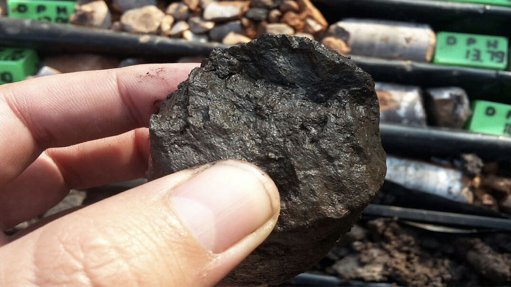
Photo by: Giyani Metals Corp
Name of the Project
K. Hill manganese project.
Location
Kanye basin, south-eastern Botswana.
Project Owner/s
Manganese development company Giyani Metals Corp.
Project Description
The project will be developed to produce high-purity manganese sulphate monohydrate (HPMSM), a precursor chemical used in the manufacturing of rechargeable battery cathodes for electric vehicles.
The project’s processing plant will produce about 100 000 t to 120 000 t of high-purity manganese sulphate a year and about 891 000 t of high-purity manganese sulphate monohydrate over its ten-year mine life.
Potential Job Creation
Not stated.
Net Present Value/Internal Rate of Return
The updated preliminary economic assessment (PEA) has increased the project’s pretax net present value, at a 10% discount rate, from $357-million in the April 2020 PEA to $431-million in the April 2021 PEA. The internal rate of return has decreased from 82.10% to 80% after tax. The project has a payback of three years.
Capital Expenditure
The project will require a capital investment of about $153-million.
Planned Start/End Date
First shipments are expected in 2023.
Latest Developments
Giyani has announced the results of a life-cycle assessment (LCA), prepared by Minviro, based on the feasibility study for its K.Hill battery-grade manganese project, with these concluding a total product global warming potential of 3.2 kg of carbon dioxide equivalent (CO₂e) per kilogram HPMSM.
Scope 1 and scope 2 emissions contribute 1.4 kg CO₂e/kg of HPMSM.
The assessment measures the global warming potential in the production of 1 kg manganese oxide resources extracted at K.Hill.
The assessment was conducted according to the requirements of relevant International Organisation for Standardisation standards, including a critical review.
The goal of the LCA is to determine the significant project and process parameters contributing to the global warming potential from production of HPMSM at K.Hill.
The assessment is a cradle-to-gate study: the product global warming potential is assessed from the point of ore and waste rock extraction (cradle) to the end-gate (a set point at the end of processing, with HPMSM being ready for transport to customers), modelled in the two distinct stages of mining and processing using data developed as part of the feasibility study.
The total global warming potential of 3.2 kg of CO2e/kg of HPMSM can be classified into Scope 1 and 2 and upstream Scope 3 emissions.
Scope 1 (direct) emissions, which reflect greenhouse-gas (GHG) emissions associated with the combustion of fuels on site and emissions from reagents used in processing, total 0.2 kg of CO2e/kg of HPMSM.
Scope 2 (indirect) emissions, which reflect GHG emissions from imported power, total 1.2 kg CO2e/kg HPMSM.
Scope 3 (indirect) upstream emissions, which reflect other GHG emissions, such as the extraction and production of purchased materials and fuels, total 1.8 kg CO2e/kg HPMSM.
The LCA will support Giyani in understanding the global warming potential of K.Hill, its main drivers and inform decision-making on advancing project development.
It notes that the main impact driver of the global warming potential is the consumption of electricity from the national grid in Botswana, corresponding to about 37% of total global warming potential.
The plan, as laid out in the feasibility study for K.Hill, includes a 4.5 MW photovoltaic solar plant. Giyani is assessing various options to further reduce the global warming potential for K.Hill and develop a roadmap for decarbonisation.
Key Contracts, Suppliers and Consultants
Mintek (metallurgical testwork); SRK Consulting (updated mineral resources estimate); and Tetra Tech subsidiary Coffey Geotechnics (metallurgical testwork programme and process flowsheet development); and Minviro (LCA).
Contact Details for Project Information
Giyani Metals Corp, tel +1 289 291 7632 or email info@giyanimetals.com.